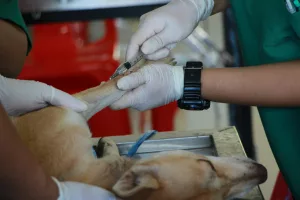Bearded dragons are fascinating creatures that exhibit a wide range of behaviors, including waving at their reflections. This behavior, known as the “wave,” is commonly observed in captive bearded dragons when they see their own reflection in a mirror or glass surface. Understanding why your bearded dragon waves at its reflection can deepen your appreciation for these reptiles. Let’s delve into various theories and practical insights to better comprehend this intriguing behavior.
Theories Behind the Behavior
There are several theories as to why bearded dragons wave at their reflections. Understanding these theories can help us appreciate the complexity of these reptiles and the nuances of their behavior.
Territorial Instincts
One theory suggests that they are simply reacting to what they perceive as another bearded dragon in their territory. This could be a sign of dominance or territorial aggression. In the wild, bearded dragons establish territories and can become quite defensive if they feel their space is being invaded. When they see their reflection, they might interpret it as an intruder, prompting a wave as a warning or a show of dominance.
Example: Imagine a bearded dragon named Spike who lives in a spacious terrarium with reflective glass walls. Every time Spike catches a glimpse of his own reflection, he might interpret it as another dragon encroaching on his turf, leading him to wave in an attempt to assert his dominance.
Communication and Social Interaction
Another theory proposes that the waving behavior is a form of communication. Bearded dragons are social animals, and waving could be a way for them to acknowledge the presence of another creature, even if it is just their own reflection. In the wild, waving can be a submissive gesture used to avoid confrontation, indicating that the dragon recognizes the presence of another and is not a threat.
Example: Consider a scenario where two bearded dragons are placed in adjacent enclosures. One dragon, upon seeing the other, might wave as a form of greeting or submission, signaling peaceful intentions.
Instinctual Response
It is also possible that the waving behavior is an instinctual response ingrained in bearded dragons as a means of self-recognition. When they see their reflection, they may mistake it for another member of their species and instinctively respond with a wave. This behavior might be similar to the way some birds peck at their reflections, mistaking them for rivals.
Professional Insight: During my years of observing reptiles, I have noticed that many captive animals exhibit behaviors that seem instinctual but are triggered by artificial environments. Bearded dragons, for instance, might be reacting to their reflections out of a deeply rooted instinct, even if the situation is not threatening.
Environmental Factors
Environmental factors may also play a role in triggering the waving behavior. In their natural habitat, bearded dragons use visual cues to communicate with other members of their species. In captivity, the presence of reflective surfaces may confuse them, leading to the waving response.
Impact of Captivity
Captive environments differ significantly from the wild, often lacking the complex stimuli that bearded dragons are accustomed to. Reflective surfaces are not a natural part of their habitat, which can lead to misinterpretation of visual cues. The waving behavior might be an adaptive response to these unusual surroundings.
Tip: To minimize confusion, consider placing a non-reflective background in your bearded dragon’s enclosure. This can help reduce the frequency of waving triggered by reflections.
Further Research and Observation
While there are various theories about why bearded dragons wave at their reflections, more research and observation are needed to fully understand this behavior. By studying the reactions of bearded dragons in different settings and contexts, researchers can gain more insight into the motivations behind the waving behavior.
Observational Studies
Conducting observational studies in both captive and natural environments could provide valuable data. By comparing behaviors across different settings, researchers can identify patterns and factors that influence waving.
Case Study: A study conducted in a controlled environment with multiple bearded dragons showed that individuals in enclosures with fewer reflections exhibited less waving behavior, suggesting a link between environmental stimuli and the frequency of waving.
Practical Tips for Bearded Dragon Owners
Understanding the waving behavior can enhance your interaction with your pet and improve their well-being. Here are some practical tips for bearded dragon owners:
- Monitor Behavior: Regularly observe your bearded dragon to understand their unique behaviors and triggers. This can help you identify if the waving is a response to a particular stimulus.
- Adjust the Environment: If your dragon is waving excessively at its reflection, consider altering the enclosure setup. Use non-reflective materials and provide plenty of hiding spots to make them feel secure.
- Social Interaction: If your bearded dragon seems lonely, consider introducing another dragon, but do so cautiously. Monitor their interactions closely to ensure they are compatible and that waving is not a sign of aggression.
- Enrichment Activities: Provide enrichment activities that stimulate their natural behaviors. This might include offering varied textures, climbing opportunities, and interactive toys.
Creating a Stimulating Environment
A well-designed enclosure can significantly reduce stress-induced behaviors like excessive waving. Here’s a more detailed guide to setting up a stimulating habitat:
- Temperature and Lighting: Ensure the terrarium has a proper temperature gradient, essential for thermoregulation. Use UVB lighting to mimic natural sunlight, crucial for their health.
- Substrate Choice: Choose a substrate that mimics their natural environment, such as reptile carpet or tile, to prevent impaction risks associated with loose substrates.
- Decor and Layout: Incorporate rocks, branches, and plants to provide climbing opportunities and visual barriers, reducing stress from excessive exposure to their reflection.
- Hiding Spots: Offer multiple hiding spots to give your dragon a sense of security, which can help mitigate stress-related behaviors.
Feeding and Nutrition
Proper diet and nutrition are key to maintaining a healthy bearded dragon. A balanced diet can contribute to overall well-being, potentially reducing stress-induced behaviors.
- Variety in Diet: Offer a mix of insects, such as crickets and mealworms, along with fresh vegetables and occasional fruits.
- Calcium and Vitamins: Dust insects with calcium and vitamin powders to prevent deficiencies that can affect behavior and health.
Common Mistakes and How to Avoid Them
While caring for bearded dragons, owners sometimes make mistakes that can inadvertently encourage waving or other stress-related behaviors.
- Mistake 1: Ignoring Behavioral Changes: It’s crucial to pay attention to any changes in behavior, as they can signal stress or health issues. If your dragon suddenly starts waving more frequently, it may be worth consulting a veterinarian.
- Mistake 2: Inadequate Habitat Setup: A poorly designed habitat can lead to stress and unwanted behaviors. Ensure the terrarium is appropriately sized, well-lit, and equipped with the right temperature gradient.
- Mistake 3: Lack of Stimulation: Bearded dragons need mental and physical stimulation. A monotonous environment can lead to boredom and stress-related behaviors like excessive waving.
Preventive Measures
- Regular Health Checks: Schedule routine vet visits to catch any health issues early that might manifest as changes in behavior.
- Behavioral Enrichment: Rotate toys and rearrange the habitat periodically to keep your dragon engaged and curious.
Observational Insights
Through careful observation, you can learn a lot about your dragon’s specific needs and preferences. Each dragon is unique, and understanding their individual behavior can significantly enhance their care.
Personalized Observation
- Behavior Journaling: Keep a journal of your dragon’s behavior patterns, noting any changes or triggers related to waving or other behaviors.
- Daily Interaction: Spend time with your dragon daily to build trust and understand their personality better.
Expert Opinions and Insights
Gaining insights from reptile experts and enthusiasts can provide valuable perspectives on managing waving behavior. Many experts emphasize the importance of a holistic approach to reptile care.
Community Engagement
- Joining Forums: Engage with online reptile communities to exchange tips and experiences with other bearded dragon owners.
- Consulting Experts: Don’t hesitate to reach out to herpetologists or experienced breeders for personalized advice on managing specific behaviors.
Conclusion and Reflection
The waving behavior of bearded dragons adds to the intrigue and charm of these unique reptiles. Whether it is a display of dominance, communication, self-recognition, or simply confusion, it is a behavior that continues to captivate and puzzle reptile enthusiasts around the world. By understanding and adapting to these behaviors, we can create a more harmonious environment for these fascinating creatures, allowing them to thrive in captivity.
Remember, every bearded dragon is unique, and what works for one may not work for another. Patience, observation, and a willingness to adapt are key to ensuring your bearded dragon lives a healthy, enriched life.



